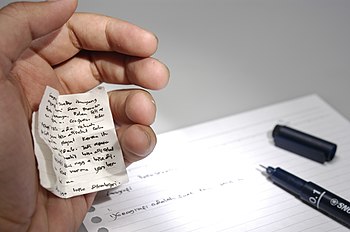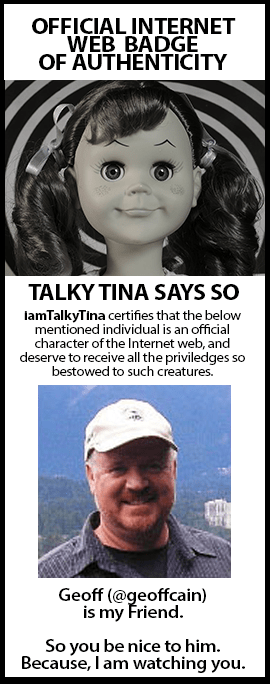I have had to address “cheating” in education is a very real way here at Humboldt State. I have instructors who are new to online learning and that is one of the first things they asked – how do we know the students won’t cheat? I usually direct faculty to resources for designing assignments and tests to minimize cheating and how to promote an environment of academic integrity. I wrote a blog posting on academic integrity and ways to minimize cheating last year.
I used to have some students in one of my English classes who would ask me what they had to do to get an “A.” I would tell them to follow the steps in the assignment and turn their work in on time and they would get an “A” and they would say “no, really, what is the system here?” They assumed that there was a back door somewhere or some way to game the system. They thought I was a bad teacher because I wouldn’t tell them. I wouldn’t let them in on the secret. Many of my students saw the end of education, the assessment or final paper as “the product” of education. What I taught though was the process of learning. There were a lot of steps in my class and not really any short cuts. I think that there is a lot to the gamification of learning. I think that letting the students loose on the learning outcomes of a course and letting them discover what the relevant information might be that would address those learning outcomes would teach them a lot about learning. It would also teach teachers how to write precise learning outcomes!
The traditional fears about cheating baffle me. I always say that if the questions you are asking your students can be answered by Google, you are asking the wrong questions.
For every act of “cheating” there should be a corresponding action for “legitimate” learning:
Cheating Rhizomatic
| Copying sources without attribution | Share sources (social bookmarking) – teach citation |
| Looking at someone else’s work | Collaborate – Students can create collaborative knowledge via wikis |
| Buying or stealing the answers to tests | Have students create the test questions, debate answers |
| Sneaking notes into class | Open book, open internet tests |
| Downloading papers from the internet | Assignments use the latest news and student experience |
| Recycling papers | Have students create assignments that are relevant |
There are some faculty who think that students who do not buy the textbook are cheating. Often, this comes from professors who do not know how much their textbooks cost. Jordan Epp and I discussed the idea of hacking the syllabus a while ago when he told me about a student who did Google searches on the weekly learning outcomes from the syllabus rather than buying the textbook.






